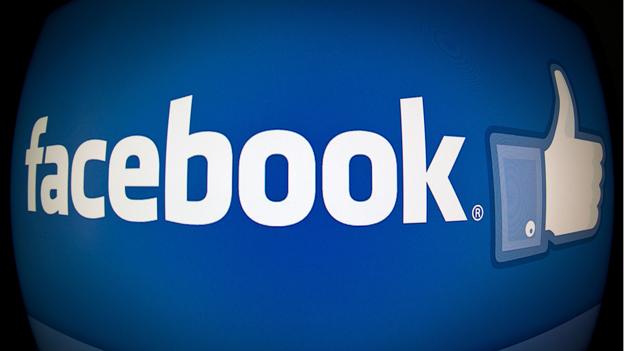Facebook: Over the hill, or enjoying middle age?
- Published
- comments

Facebook is 10 years old.
Hard to believe in two ways - it seems to have been around forever, and yet to be something brand new and of the moment. And perhaps that is the secret of its success - the ability to weave its way into our lives while constantly adapting to changing circumstances.
I've spent a little time trying to find out about its early history in the UK, mainly by appealing to my Facebook friends to show they were among the earliest British members of the social network.
Facebook - which started in Mark Zuckerberg's Harvard bedroom and spread across the US university's campus like wildfire - was aimed solely at students at first, and only those at the most exclusive colleges. The same was true when it arrived in the UK in 2005 - only those with Oxford, Cambridge and LSE email addresses could join.
Among those who respond to my Facebook query is Jennifer Hawton who joined in June 2005 while she was reading natural sciences at Cambridge. She remembers sitting in her room thinking "I'm naturally nosy, I like to know about people", and signing up.
Nine years on and working in London, she still uses it reasonably frequently, keeping in touch with old friends from university.
An even earlier joiner was Curon Wyn Davies, who was studying at Jesus College, Cambridge. His timeline tells me he joined on 31 May 2005. He has dug up a real gem, the British Facebook song, external. With lyrics like "poke me night or day", "looking for some random play", it feels like a relic of a bygone age, when Facebook was essentially a dating app for students.
Others who joined in 2005 and 2006 remember it being a real student phenomenon - "you had to have an 'ac.uk' address to join" - which may have given it an added cachet, especially for those still in school. Roaming the timeline of one of my younger BBC colleagues, who must have just left school in 2006, I found this: "Now addicted to Facebook, MySpace and MSN. Work has no chance."

Mark Zuckerberg
But soon MySpace and MSN, along with Bebo and Friends Reunited, were dwindling away as Facebook spread beyond universities to, well, everyone. Parents began joining to keep in touch with their offspring.
One Facebook friend tells me she joined in May 2006 - "Lost my son who'd gone on a two day bender, so I joined Facebook to put out an APB and track him down. It worked: 'Oh Mum you're so embarrassing'."
By the spring of 2007 even someone as old as me was joining, external (for professional purposes, you understand). I made a piece for BBC Radio 4's Today Programme on whether social networking was for the more mature person - and listened as one of the more mature presenters introduced it to listeners as "Facepack".
About the same time another middle-aged man, Chris Ward, joined up. Later, his daughter followed him onto Facebook. He says, "At one stage we had to moderate her usage as she was using it ALL the time - but now goes nowhere near it. Snapchat and Instagram are everything - which seems to support the recent reports on losing teen audience…"
Well, maybe. But ever since I joined Facebook it has been going out of fashion. Early in 2008, it seemed "everyone" was moving to this new thing called Twitter. Then an infestation of advertising was going to send everyone to places where they would not be bombarded with messages.
And every time Facebook changed its look, and its byzantine privacy settings, there were howls of outrage and threats to abandon it for something better.
As for me, I've had an on-off relationship with Facebook over the years - first bewitched by the excitement of this new means of communication, then bored by the constant flow of inane updates and annoyed by the shouty requests to try this game or that new feature.
I now spend most of my time with another social network which gives me a better feel for what's happening minute by minute. But I return to Facebook reasonably frequently to see what old friends and family are up to, and to share my life with a smaller circle than on that other network.
Facebook is entering middle-age like many of its users - but that can be a comfortable and very prosperous time of life.